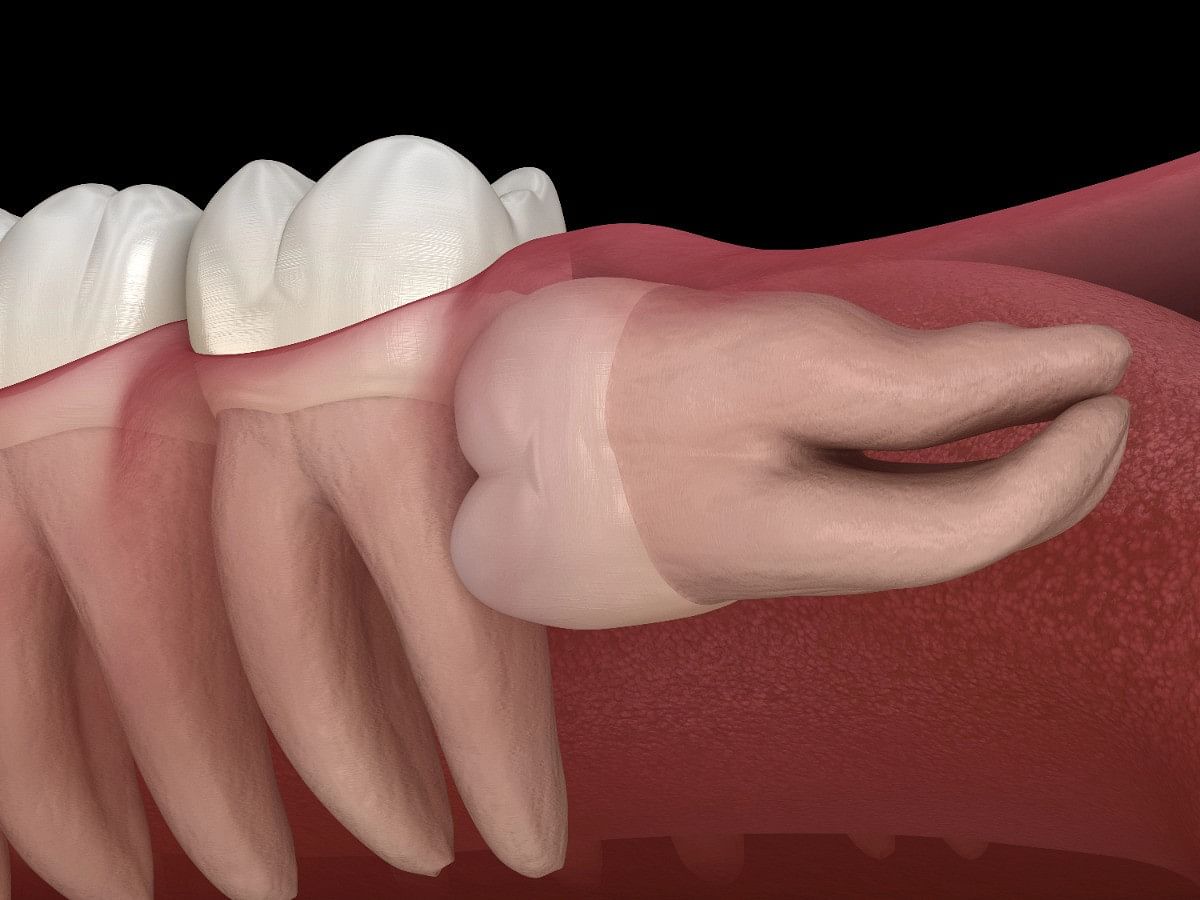For appointments, call (225) 292-6991. Serving Baton Rouge, Gonzales, Denham Springs, and New Roads

How Long After Wisdom Teeth Removal Can I Get Braces?
When planning for braces, many patients and parents often wonder how wisdom teeth might impact orthodontic treatment. Wisdom teeth, also known as third molars, are the last set of teeth to emerge, usually appearing in late adolescence or early adulthood. While they don’t always cause problems, their arrival can sometimes lead to overcrowding, misalignment, or even pain. These issues can complicate orthodontic treatment if not addressed properly. Understanding the timing and necessity of wisdom teeth removal before getting braces is crucial for achieving the best results.
Why Wisdom Teeth Removal May Be Necessary Before Braces
Wisdom teeth removal is often recommended when there’s a risk of these teeth causing overcrowding or other complications in the mouth. As the last set of molars to emerge, wisdom teeth frequently lack sufficient space, causing them to become impacted or grow at odd angles. When this happens, they can push against other teeth, leading to misalignment that may undo the effects of orthodontic treatment. For those already considering braces, the presence of impacted wisdom teeth could interfere with the proper alignment process, making it essential to remove them before beginning treatment.
In addition to crowding, wisdom teeth can also cause discomfort, infections, or damage to neighboring teeth if they do not emerge properly. Removing them ensures that any potential complications are addressed ahead of orthodontic work. It’s important to note that not every patient will need their wisdom teeth removed before getting braces; the decision is based on the individual’s dental anatomy and the recommendation of their orthodontist. Some individuals may have sufficient space for wisdom teeth, and they may not pose a risk to alignment, allowing braces to be applied without extraction. However, for many, removing wisdom teeth early on is a preventative measure that supports long-term orthodontic success.
Healing Process After Wisdom Teeth Removal
After wisdom teeth removal, the healing process can vary depending on the complexity of the extraction and the individual’s overall health. Generally, the initial recovery period takes about 1 to 2 weeks. During this time, patients may experience swelling, discomfort, and mild bleeding. Following post-operative care instructions, such as avoiding strenuous activities, sticking to soft foods, and maintaining good oral hygiene, is essential to minimize complications and promote healing. While the visible recovery might seem quick, it’s important to remember that the jawbone and underlying tissues take longer to fully heal.
In most cases, the jawbone where the teeth were removed may require a few months to heal completely. This extended healing time is crucial, especially when braces are being considered. Orthodontic treatment involves applying pressure and tension to the teeth and jaw, which can be uncomfortable and even risky if the jaw is not yet stable. Factors such as the patient’s age, the position and number of teeth removed, and their overall health can also influence the healing timeline. Younger patients may heal faster, while complex extractions might require additional time. Therefore, ensuring that the jaw and gums have sufficient time to heal is essential before moving forward with braces.
Recommended Waiting Period Before Getting Braces
To achieve the best orthodontic results, most orthodontists recommend waiting at least 4 to 6 weeks after wisdom teeth removal before beginning braces. This waiting period allows the initial healing process to take place, ensuring that the gums are stable and the swelling has subsided. During this time, the body starts to repair the bone structure and tissues surrounding the extraction sites, making it safer and less painful for braces to be applied. While the 4 to 6-week timeframe is a general guideline, it’s essential to consult with your orthodontist, as they will assess your healing progress and determine the most suitable time to start treatment.
The reason for this waiting period is to prevent potential complications and maximize the effectiveness of the braces. Applying braces too soon after surgery can exacerbate pain, lead to inflammation, or even cause infections if the surgical sites are not fully healed. Additionally, the pressure from braces may interfere with the natural healing process, compromising the alignment results. By waiting the recommended period, patients can ensure that their gums and jawbone are adequately prepared, allowing the braces to be applied without added discomfort or risk. The exact timeline may vary based on individual factors, so having open communication with your orthodontist is key to developing a personalized and effective treatment plan.
Potential Complications of Getting Braces Too Soon
Getting braces too soon after wisdom teeth removal can lead to several complications that may hinder the orthodontic process and affect the overall outcome. One of the most common issues is increased pain and discomfort. If braces are applied before the surgical sites have healed, the pressure they exert on the teeth and jaw can aggravate the sensitive areas, leading to more intense pain than usual. This discomfort can make it difficult for patients to adjust to their braces, impacting their ability to eat or speak comfortably.
Another potential complication is the risk of infection. The gums and jaw need time to heal after wisdom teeth extraction, and placing braces too early could irritate these areas, potentially introducing bacteria and causing infections. Such complications not only delay the healing process but may also require additional treatment, prolonging the overall orthodontic journey. Furthermore, getting braces too soon can interfere with the natural alignment of the teeth. Swelling and inflammation from the extraction might cause the teeth to shift unpredictably, making it challenging for braces to effectively guide the teeth into their proper positions. By waiting for the recommended healing period, patients can minimize these risks, ensuring that their braces are effective and comfortable.
How to Prepare for Braces Post-Wisdom Teeth Removal
Preparing for braces after wisdom teeth removal involves taking steps to ensure a smooth transition and maximize the success of the orthodontic treatment. First and foremost, it’s essential to follow all post-operative care instructions provided by your oral surgeon or dentist. Proper aftercare, such as avoiding hard foods, rinsing with a saltwater solution, and taking prescribed medications, can help minimize swelling and promote faster healing. Attending follow-up appointments is also crucial to monitor the healing process and to identify any potential issues early on.
Maintaining good oral hygiene is another key step in preparing for braces. Keeping the mouth clean during the healing period reduces the risk of infection and ensures the gums and surrounding tissues remain healthy. It’s important to gently brush and floss around the surgical sites to avoid irritation while still maintaining cleanliness. Additionally, eating a balanced diet rich in vitamins and minerals can support tissue repair and recovery. Once the gums and jaw have sufficiently healed, patients should schedule a consultation with their orthodontist to discuss the next steps. At this point, the orthodontist will evaluate the readiness of the mouth for braces and create a personalized plan to begin treatment. By taking these proactive measures, patients can prepare themselves for a successful orthodontic experience post-wisdom teeth removal.
Are You Ready for Braces After Wisdom Teeth Removal?
Whether you’re wondering if you need to wait longer or if you’re ready for braces now, we’re here to help you make the right decision for your dental health. Schedule a consultation with Frúge Orthodontics today to get a professional assessment and a tailored plan that fits your needs. Let’s take the next step together toward a healthy, confident smile—reach out now to book your appointment and start your orthodontic journey today!
